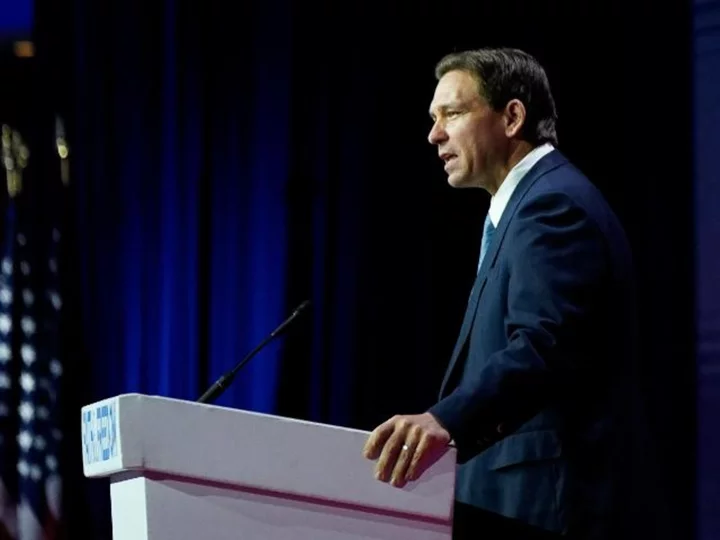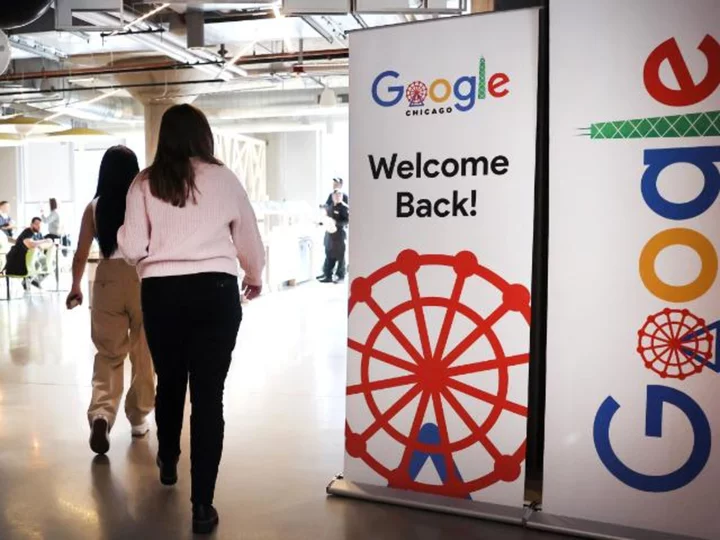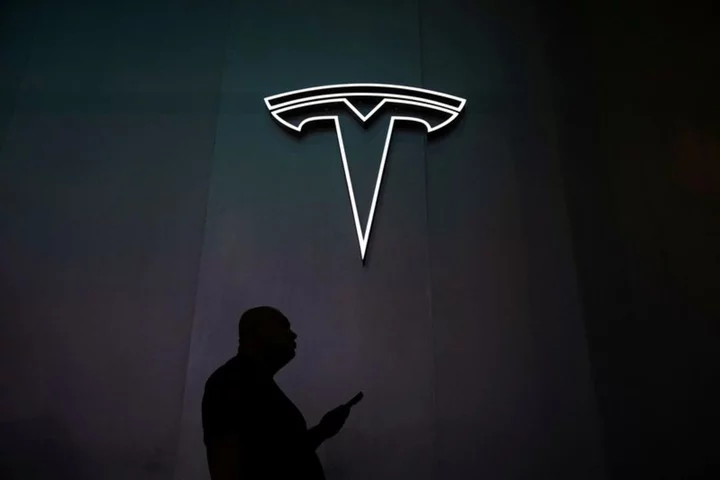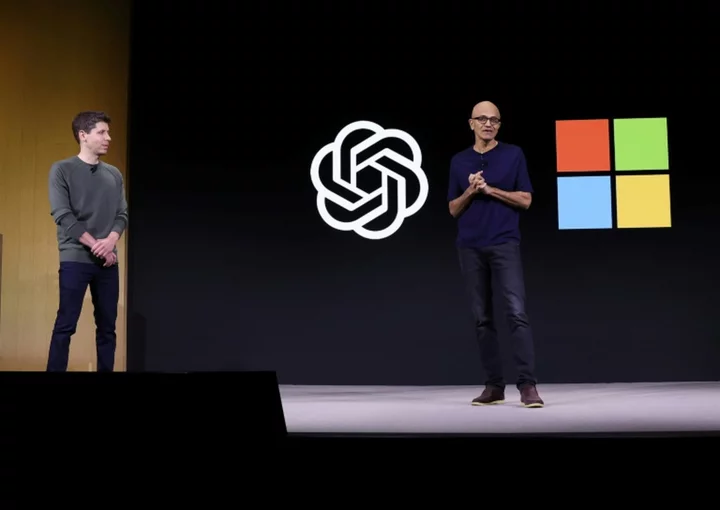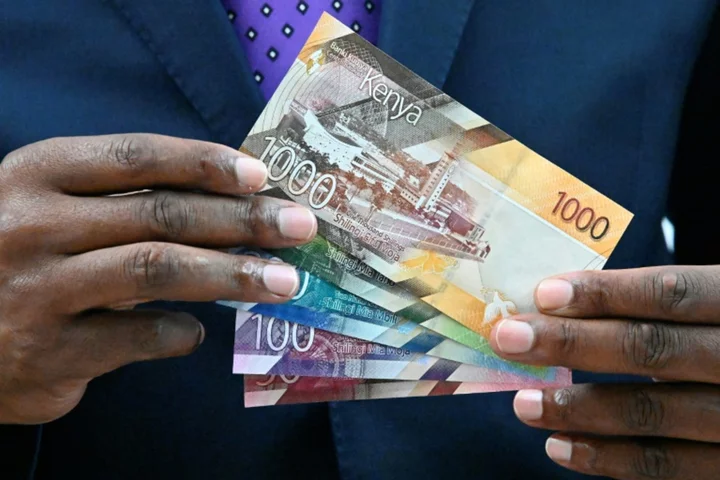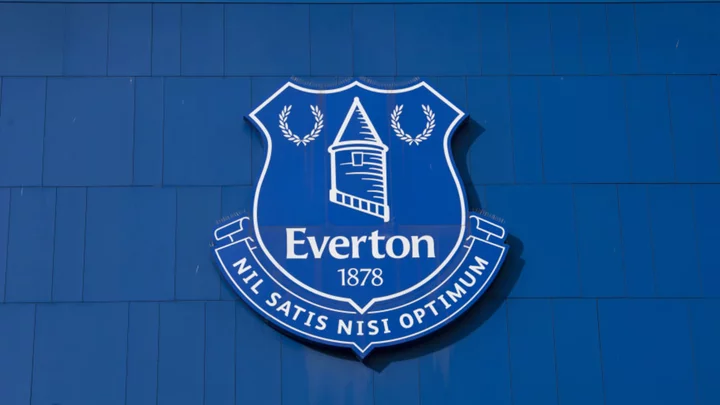Florida Gov. Ron DeSantis is urging the state's pension fund manager to consider legal action against Bud Light's parent company amid conservative backlash to the beermaker's recent marketing efforts, the latest attempt by the Republican presidential candidate to inject himself and the state he runs into the country's culture wars.
In a Thursday letter obtained by CNN, DeSantis suggests AB InBev "breached legal duties owed to its shareholders" when it decided to associate with "radical social ideologies." Sales of Bud Light have plummeted in the months since it entered into a minor partnership with transgender influencer Dylan Mulvaney that precipitated a boycott from conservatives.
"All options are on the table," DeSantis wrote, as the state reviews the impact of AB InBev's recent financial downturn, though it's unclear what legal recourse the state might have to challenge a multinational corporation's business decisions.
"We must prudently manage the funds of Florida's hardworking law enforcement officers, teachers, firefighters, and first responders in a manner that focuses on growing returns, not subsidizing an ideological agenda through woke virtue signaling," DeSantis wrote in the letter to Lamar Taylor, the interim director of the State Board of Administration, the state agency that manages Florida's retirement funds for public workers. DeSantis oversees the board as a trustee along with the state's attorney general and chief financial officer, both also Republicans.
CNN has reached out to AB InBev for comment.
At the end of March, Florida's pension fund held more than 682,000 shares of AB InBev valued at the time at nearly $46 million. The company's stock price has fallen since then from $66 a share to $58, though it's still higher than its 52-week low of $44 from September 2022, which was well before the company's recent controversies.
This is not the first time DeSantis has threatened to use Florida's $235 billion in pension investments as a cudgel in his political fights with corporate America. In early 2022, he threatened to hold Twitter shareholders accountable if they didn't sell the social media company to Tesla CEO Elon Musk. Later in the year, DeSantis pushed the state pension board to adopt new rules that banned its investors from considering the environmental and social good of a company or fund when deciding where to put Florida's retirement assets, pushing back against the so-called ESG movement.
DeSantis' latest salvo against what he calls "woke capitalism" also follows his high-profile clashes with another corporate titan, the Walt Disney Company, over the company's objections to a state law that restricts how schools teach about sexual orientation and gender identity. DeSantis and Disney are currently engaged in two separate lawsuits over the Republican's move to strip the theme park giant of its longstanding special government powers in Central Florida.
Unlike his war with Disney, conservative outrage against AB InBev came well before DeSantis decided to take action against the Belgium beermaker. Right-wing influencers and celebrities helped fuel widespread boycotts against the company's top brand, Bud Light, after it sponsored Mulvaney, a trans advocate famous on TikTok for her bubbly and positive posts. She posted a brief digital ad for the company for NCAA March Madness this year and the brand sent her a personalized can with her face on it.
Amid the fallout, Modelo Especial became the top-selling beer in May, overthrowing Bud Light from the top spot it held for more than two decades, according to NIQ data given to consulting firm Bump Williams. In June, Modelo Especial captured 8.7% of overall beer sales, compared to Bud Light's 7% share.
Bud Light sales, in dollars, have recently tumbled by about 25% year-over-year, according to the data shared by Williams.
Sales have slumped despite the company's efforts to distance itself from controversy.
"We never intended to be part of a discussion that divides people. We are in the business of bringing people together over a beer," A-B CEO Brendan Whitworth said in an April 14 statement. Soon after the statement was issued, the company said that two marketing vice presidents had taken leaves of absence.
Whitworth later laid out a plan to provide financial assistance to its wholesalers to help offset falling sales, and reimburse fuel for distributors' trucks, among other things.
Bud Light's summer ad campaign includes partnerships with country singers and new ads featuring NFL players. A recent 60-second spot shows people enjoying Bud Light despite facing some of summer's biggest pain points, like sunburn or a sudden thunderstorm during a cook out.
However, DeSantis' actions on Thursday signaled Republicans are not done using the company as a punching bag as they seek to gain favor with the party's base. The move against Bud Light also served as another reminder that DeSantis as a sitting governor can use the power of the state to weigh in on the issues animating Republican voters, an advantage he holds over a 2024 primary field that includes many people not currently in office, including his top rival, former President Donald Trump.
As it charts a course down the middle, Bud Light has lost credibility among members of the LGBTQ+ community who are dismayed by the brand's handling of the backlash against its minor partnership with Mulvaney. Because of that, Bud Light hasn't gotten the benefit of a so-called buycott campaign, which can help buoy sales when brands are hit by calls for a boycott.
Earlier this year, DeSantis praised conservative consumers for boycotting the company, telling the right-wing podcaster Benny Johnson: "I'll never drink Bud again."
"Corporate America is trying to change our country, trying to change policy, trying to change culture. And, you know, I'd rather be governed by 'we the people' than companies," DeSantis said in the interview. "And so I think pushback is in order across the board, including with Bud Light."
The staying power of the boycott remains to be seen. DeSantis, for example, told Johnson he and his wife prefer another beer: "We actually like the stout, Guinness."
Yet, a decade ago, the Irish beer brand became a target of conservative ire when it pulled its sponsorship of New York's St. Patrick's Day over the exclusion of LGBTQ groups. In response, the Catholic League called for a boycott of Guinness.

